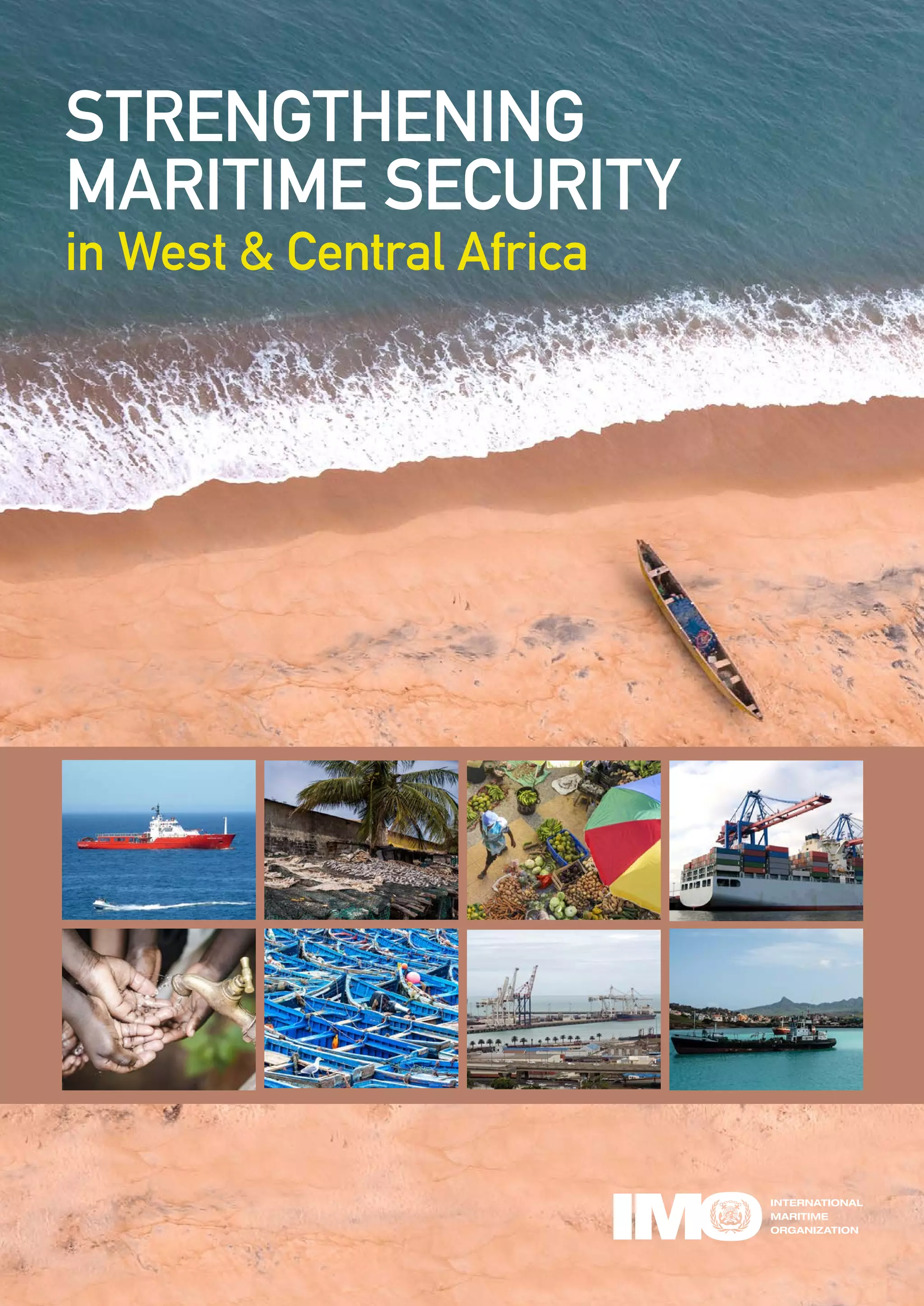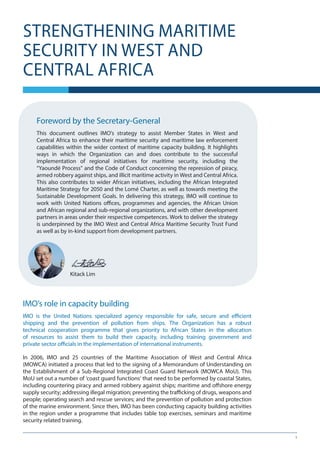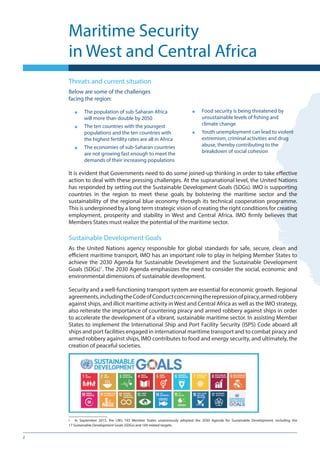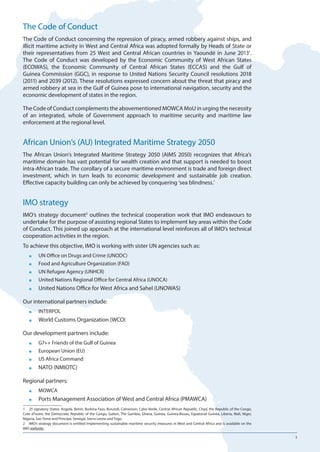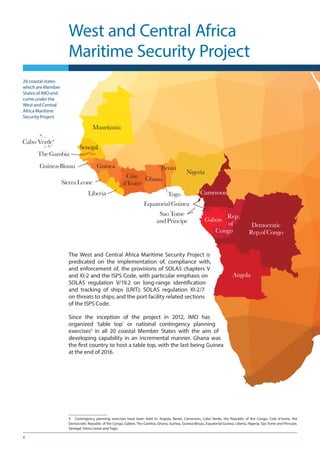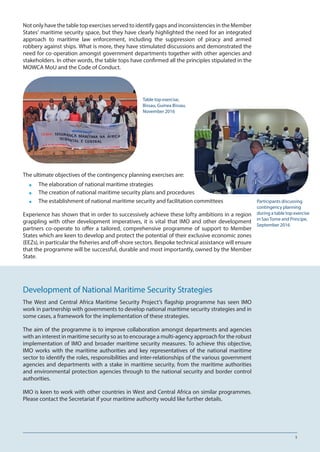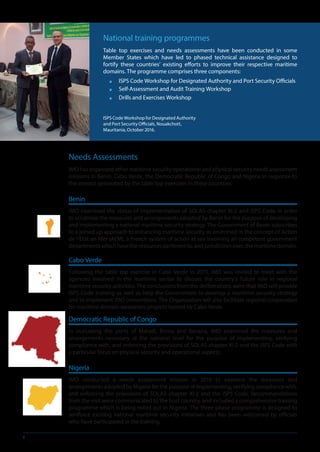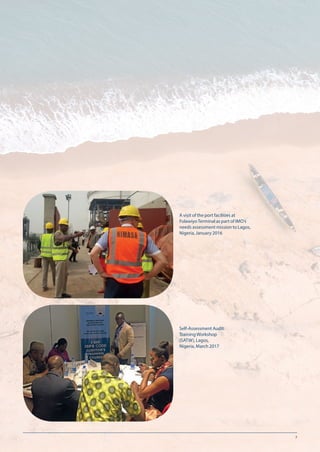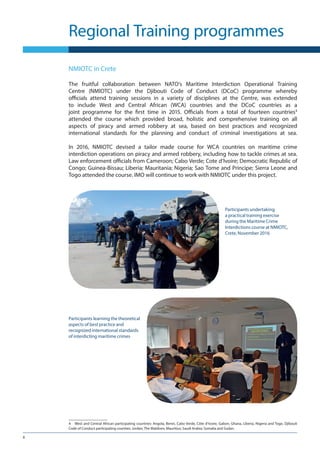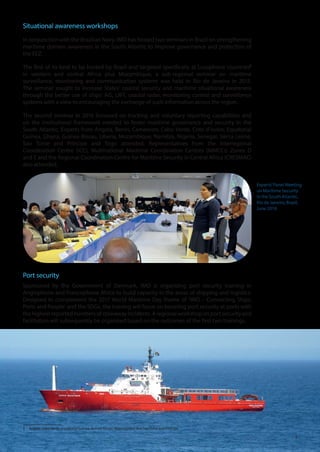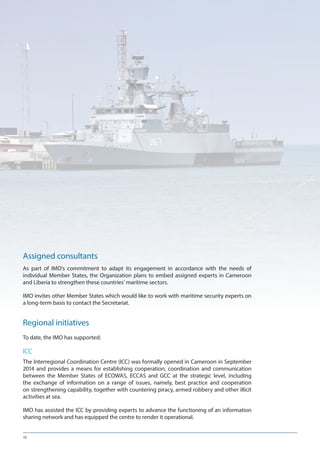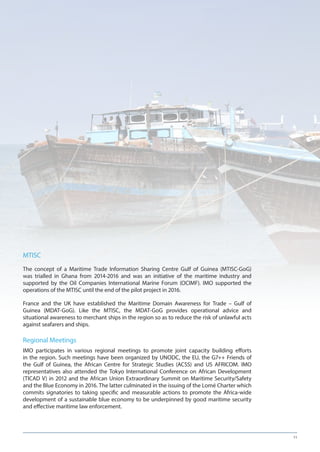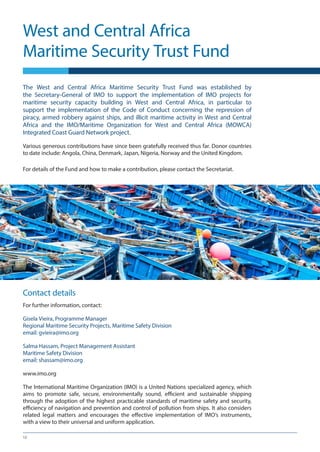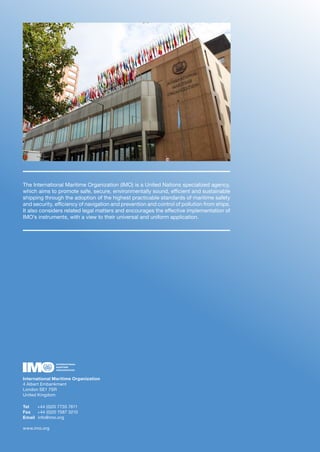The document outlines the International Maritime Organization's (IMO) strategy to enhance maritime security and law enforcement capabilities in West and Central Africa, emphasizing collaboration with regional and international partners. It highlights various regional initiatives, such as the Yaoundé Process and the Code of Conduct against piracy, while addressing current challenges facing the region, including population growth and economic instability. Through technical cooperation and strategic capacity building, the IMO aims to support member states in achieving the Sustainable Development Goals and fostering a secure maritime environment for economic development.
